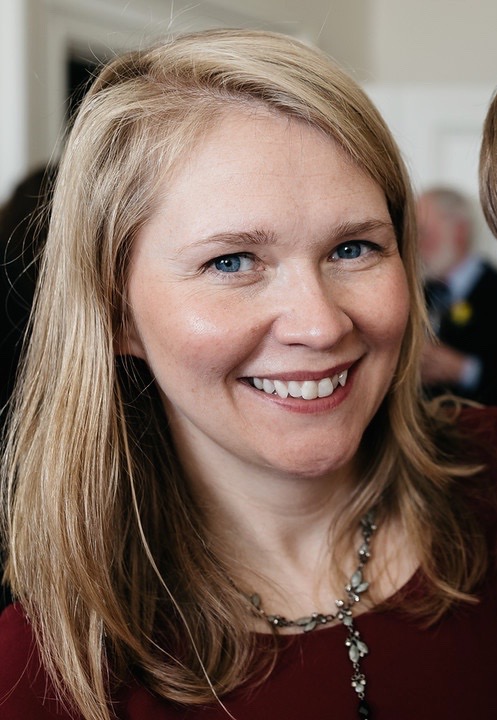Interview conducted by Ana Maria Sapountzi.
Q: Philippa, welcome. You have recently arrived at the University of St Andrews from the University of Stirling. As a professional, academic, and personal experience, how have you found the move?
A: The move has been very smooth. The department of Film Studies has been very welcoming, and it has been great to learn more about my new colleagues’ research and teaching interests, particularly as there are so many connections with my own. I have been very impressed by the ways in which the department supports and values teaching and research connections, and it has been wonderful to be able to develop new modules (Southeast Asian Cinemas and Artists’ Film and Video) that reflect my own specialisms.
Q: Your particular areas of research interests include East Asian and Southeast Asian cinemas, experimental film and documentary, sound in audio-visual media, and the relationship between censorship and grassroots film activism in Asia. What has attracted you to these various lines of research?
A: Broadly speaking, I’m interested in the politics of film form. In this way, the various lines of research that you mentioned above are all inter-related. I’m particularly interested however in the often contested relationship between memory and history in the context of censorship and authoritarian regimes. For me, Asia has produced some of the most interesting and exciting works over the last decades that engage with these issues. The more time I spend in Asia talking with researchers, curators, and filmmakers, the more I find to discover and deepen my interest.
Q: Your book Sound Design and the Ethics of Listening in Global Film and Video is about to be published. Could you provide an idea of what your book is about, and when can we expect its release?
A: Sound Design and the Ethics of Listening in Global Film and Video considers how sound design can bridge the distance between self and other, and align the spectator emotionally, ethically, and politically with a film’s characters. It proposes that an ethical spectatorship may require cinematic auditors to listen more critically. It claims that a better understanding of the fundamental role that sound and listening play in the articulation and recognition – or indeed, disavowal – of the subjectivity of others (both human and non-human) within these narratives may lead to an increased awareness of the politics of aesthetics of individual films. The book asserts that the field of sound studies creates further opportunities for research that explores these important questions about representation, spectatorship, and ethics from a range of disciplinary perspectives. It will be published towards the end of 2018!
Q: You are a Primary Investigator of the AHRC funded Southeast Asian Cinemas Research Network: ‘Promoting Dialogue Across Critical and Creative Practice’. Could you describe the function of the network and your role within it?
A: From 2016 to 2018, the Association for Southeast Asian Cinemas (which I joined in 2010) extended its biennial conferences with a series of workshops designed to facilitate dialogue across critical and creative practices. Beginning with a conference held in Kuala Lumpur, Malaysia in July 2016, our network brought together filmmakers, scholars, students, and the general public in subsequent events in Los Angeles, California, Hanoi, Vietnam, and Glasgow, Scotland. My role as Primary Investigator was to plan the events, liaise with our partners and collaborators, and keep an eye on the budget! Our website: http://www.seacrn.org has some links to some of the talks and more information on who participated. Filmmakers included Lav Diaz, Garin Nugroho, Tan Chui Mui, Boo Junfeng, Nguyễn Trinh Thi, Shireen Seno, John Torres, Nia Dinata, Kavich Neang, Lee Chatametikool, and more! It was an honour to collaborate with so many people from within the industry and with academic colleagues internationally, and I learned a great deal from the experience that has had a direct impact on both my research and teaching.
Q: In March 2018, the Southeast Asian Cinemas Network collaborated with the Glasgow Short Film Festival. Could you expound upon this collaboration, what will it entail?
A: SEACRN collaborated with the Glasgow Short Film Festival to present four programmes of Southeast Asian film, which included an all-night screening of Apichatpong Weerasethakul’s short films; experimental films from the Philippines curated by Green Papaya Arts from Manila; a retrospective of Nguyễn Trinh Thi’s works; and a screening of short films curated by Next New Wave in Kuala Lumpur. We also exhibited a new audio-visual installation by Nguyễn Trinh Thi called Everyday’s the Seventies (2018) about the Vietnamese refugee crisis in Hong Kong from the late 70s until 1997. We also exhibited a sound installation called Weekday (Hanoi) (2017) which was produced by participants of a “reality-based audio recording workshop” led by Ernst Karel (Harvard Sensory Ethnography Lab) that SEACRN organized as part of Hanoi DocFest in November 2017 – Karel also mixed the sound for Everyday’s the Seventies. This was organized alongside a symposium that was free and open to the public. The symposium explored the links between archives, activism and aesthetics with keynote talks from Professor Bliss Cua Lim (University of California, Irvine) and Dr May Adadol Ingawanij (University of Westminster) and participation from members of grassroots filmmaking collectives and organisations in Southeast Asia including Hanoi DocLab, Vietnam; Forum Lenteng, Indonesia; Anti-Archive, Cambodia, Save Myanmar Cinema and the Thai Film Archive, as well as curators and leading scholars in the field.
Q: Philippa, to end this interview on a fun note. What are the top 5 films you recommend, and why?
A: This list probably changes all the time (apart from the first one on the list which will always be my favorite film): Tropical Malady (Apichatpong Weerasethakul, 2004); Eleven Men (Nguyễn Trinh Thi, 2016); In the Mood for Love (Wong Kar-wai, 2000); L’Atalante (Jean Vigo, 1934); The Apartment (Billy Wilder, 1960). I’ll never grow tired of watching these films – if you like your love stories with a twist of melancholy, you’ll love them too.

